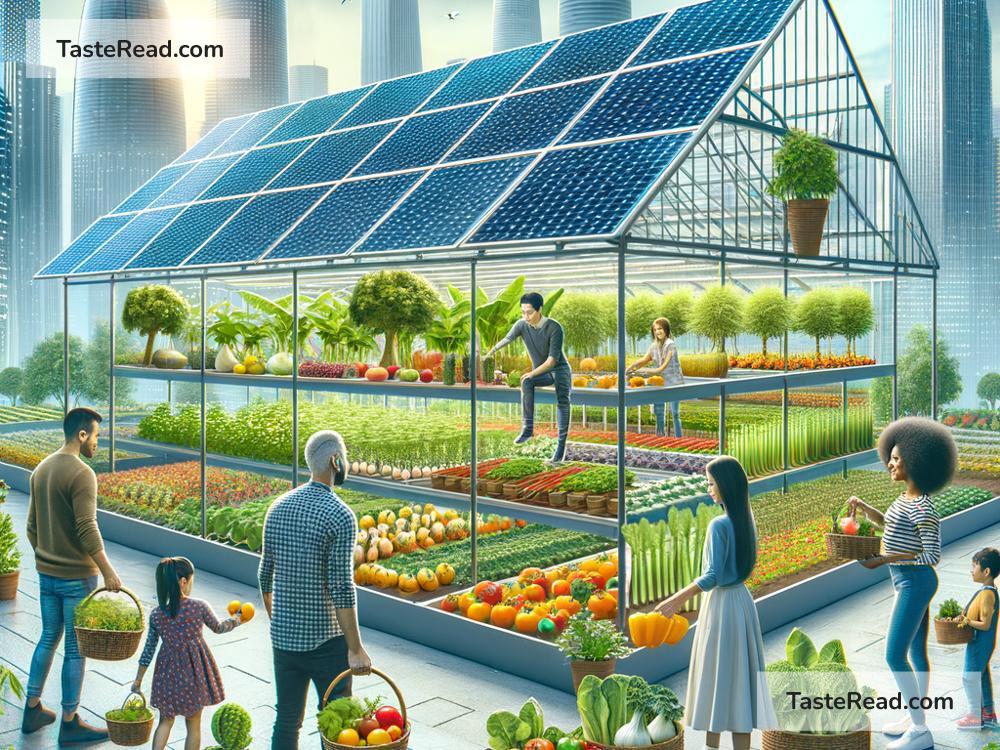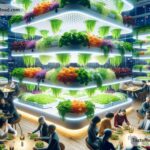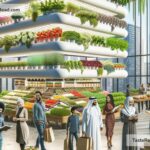The Future of Food and Social Justice: Building a Fair and Sustainable World
The food we eat connects us all. It fuels our lives, brings us together, and shapes our cultures. But the way we grow, distribute, and consume food impacts not just our health—it influences the health of our planet and people’s ability to live fair, equal lives. As we look to the future, the relationship between food and social justice will play a major role in creating a better, more sustainable world.
What Is Social Justice?
Social justice is about fairness. It means everyone, no matter where they live or who they are, should have equal access to opportunities and resources. It includes fair pay for farmers, affordable food for all communities, and protection of our planet’s resources so future generations can thrive. When it comes to food, social justice means ensuring that the system works for everyone, not just a small group of people or corporations.
Unfortunately, the current food system often creates inequality. Some communities have an abundance of food options, while others suffer from food insecurity. Food insecurity means not having enough nutritious food to eat. Globally, over 700 million people go hungry every day, while many others have access to excessive amounts of food but waste it.
The Future of Food: Challenges and Opportunities
The future of food faces many challenges, but it also offers opportunities for innovation and change. As the global population grows—expected to reach 10 billion by 2050—there will be even greater demand for food. At the same time, climate change is disrupting farming practices, causing floods, droughts, and extreme weather that make growing crops more difficult. On top of this, the industrial food system can exploit farmers, degrade the environment, and price healthy food out of reach for low-income communities.
Still, hope is on the horizon. Advances in technology, new methods of farming, and growing awareness about fairness and sustainability are driving innovative solutions to make food equitable and planet-friendly. Here are some ways food and social justice are coming together to shape a brighter future.
Fair Pay and Support for Farmers
Farmers are the backbone of the food system, yet many small-scale farmers struggle to earn enough to feed their own families. The future must involve strategies that ensure fair pay and support for farmers, particularly those in poorer countries. Fair trade initiatives are a great example of this effort. Fair trade ensures that farmers are paid fairly for their crops and work under safe conditions. Buying fair trade products, like coffee, chocolate, and bananas, is one way to make sure your food purchases contribute to social justice.
Beyond fair trade, some organizations are helping farmers learn more resilient farming methods that protect crops from climate change and boost their incomes. Providing education, access to technology, and financial support to farmers can ensure they thrive in the future food system.
Sustainable Farming for a Healthier Planet
The way we farm today has a big impact on the planet. Industrial farming often relies on harmful chemical pesticides and fertilizers that pollute the earth and water. It also leads to deforestation and loss of biodiversity, as large farms replace forests and wetlands. These practices hurt farmers, local communities, and future generations.
Fortunately, sustainable farming practices are becoming more popular. Techniques like regenerative agriculture restore soil health, making farming more productive while preventing damage to the environment. Innovations like vertical farming and urban agriculture are also gaining attention, allowing food to be grown closer to cities to reduce transportation costs and emissions.
Food Access for All Communities
In many places, nutritious food is a privilege instead of a right. Low-income communities often have limited access to fresh fruits, vegetables, and other healthy options. Instead, they rely on fast food or processed products that are cheaper but often bad for their health. This inequality is a social justice issue.
To address this, people and organizations are working to make food more affordable and accessible. Community gardens, local farmers’ markets, and food banks are examples of initiatives that bring healthy food to underserved areas. Governments can also help by supporting policies that reduce food costs, improve public school lunch programs, and require grocery stores to open in food deserts where there are few options for healthy eating.
Reducing Food Waste
Food waste is another major problem. Each year, one-third of all food produced globally goes unused. That’s enough to feed billions of hungry people. Food waste happens at every level—farms, restaurants, supermarkets, and homes—but it also highlights inequality. While food is wasted in some parts of the world, others struggle to get enough.
In the future, reducing food waste will be critical to achieving social justice. Efforts like redistributing surplus food from grocery stores and restaurants to people in need can make a difference. Technology is also helping, with apps that connect people to nearby food donations or leftover meals.
How You Can Make a Difference
The future of food and social justice isn’t just in the hands of farmers, policymakers, or corporations—it’s in your hands, too. As individuals, we can make choices and advocate for systems that align with fairness and sustainability. Here are some ways you can contribute:
– Support farmers by buying fair trade products.
– Eat sustainably by choosing plant-based meals or locally-produced food.
– Reduce food waste by composting, meal planning, and sharing excess food.
– Advocate for change by supporting policies that address food insecurity and environmental protection.
Conclusion
The future of food and social justice is deeply connected. By addressing inequality in the food system and supporting sustainable solutions, we can build a world where everyone has access to healthy, affordable meals—without harming the planet. It won’t be easy, but with innovation, collaboration, and compassion, we can work toward fairness for all people and a food system that supports a brighter future.


